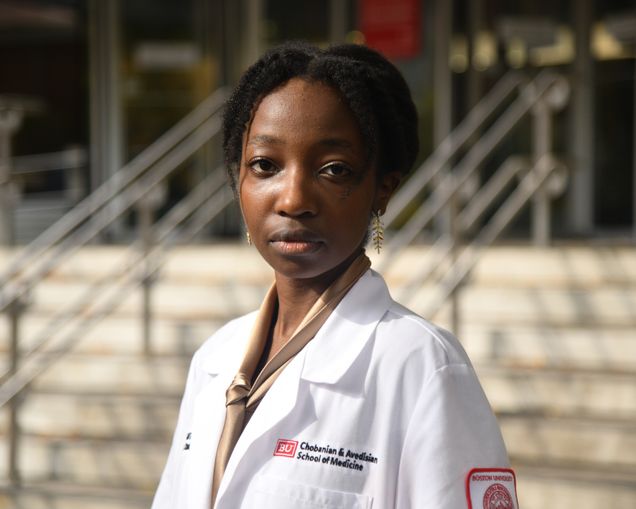Marcia-Ruth Ndege

When she was 10, Marcia-Ruth Ndege flew to New York City from her native Kenya with her sisters, aged 12 and 9. There, the three girls reunited with their mother who had successfully gambled that her work for the United Nations would secure the family entry to the U.S.
But at one point, Ndege said, all seemed lost. The girls were told their mother might be among the 36 UN workers who perished in the historic Haitian earthquake of 2010 that killed 250,000 people.
“We had to be resilient,” Ndege said.
The family moved often. Ndege attended four high schools as her mother pursued affordable rentals and better school systems to position her daughters for college and success.
Despite the upheaval, Ndege thrived academically. After graduating from New York State University Stony Brook, she worked for three years in a surgical unit, monitoring patients’ nervous systems during surgery, before entering BU as a combined MD/PhD student.
“I just happened to fall in love with research,” Ndege said. An undergraduate rotation at New York’s Cold Spring Harbor Laboratory opened her eyes to the clinical applications of research.
In her application to medical school, Ndege wrote that she wanted to become “a physician-scientist and leader who serves marginalized communities beyond the confines of a hospital setting.”
She aspires to eventually have her own lab focused on stroke and spinal cord injury, but she hopes that she can make an impact beyond the lab, in the hospital and community settings.
“Working at safety net hospitals taught me physicians and institutions can play a crucial role in the welfare of the surrounding community. My observation of the discrepancies in care for marginalized communities developed into a commitment to become a premier physician who earnestly serves these communities,” Ndege said.